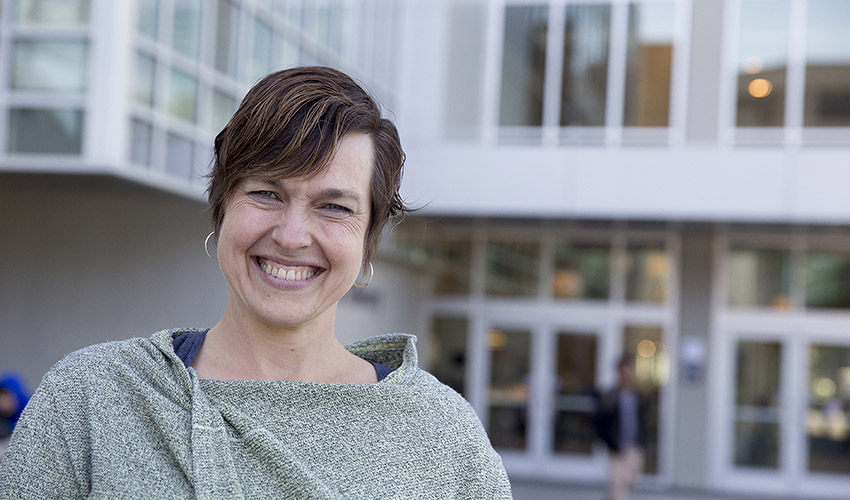Grad student’s book helps sex abuse survivors heal through writing

SF State MFA student Jen Cross published “Writing Ourselves Whole” in September 2017.
Author hopes book can help victims overcome trauma

SF State MFA student Jen Cross published “Writing Ourselves Whole” in September 2017.
A national movement against sexual abuse has spread across the nation in the form of the hashtag #MeToo, prompting celebrities and others to publicly share their own experiences of sexual assault or harassment via social media. San Francisco State University creative writing graduate student Jen Cross, a sexual abuse survivor, has watched the movement with interest. She has spent several years helping victims of abuse heal through writing and says she’s grateful for those who have courage to speak up.
“These are people who have been raising their voices in different ways, sometimes for decades. Suddenly, people are starting to pay attention,” she said.
Cross knows how powerful it can be to share personal stories. She’s facilitated numerous writing workshops for victims of sexual violence. Recently, she published a self-help book that teaches survivors how to use writing as a therapeutic tool. Her book, “Writing Ourselves Whole,” contains personal stories, encouragement, tips on maintaining a writing practice, advice on starting peer-led writing circles and more than 100 writing prompts. “My greatest hope is that this book incites readers to write,” she said.
Growing up, writing was always important to Cross, but during the years of her abuse she stopped. She didn’t feel safe keeping journals and notebooks at home, she says. It wasn’t until college that she returned to the page. She remembers spending hours in a café writing.
“In college, the notebook became a safe place again where I could be messy and complicated. I could ask questions and be angry and not have anybody try to shut me down,” she said. “I was constantly battling the voice of my abuser in my head saying, ‘You’ve got it all wrong.’ One of the powerful things about writing is the page won’t do that.”
After college, Cross worked at a shelter for victims of domestic violence. She pursued an MA in transformative language arts at Goddard College and became certified as a writing workshop facilitator. When she hosted her first eight-week workshop for survivors of sexual abuse, she saw the students transform and realized writing could help a lot of people. They became more comfortable in their writing and were supportive of each other. One woman even told Cross the workshop helped her communicate better with her children.
Trauma victims often have a hard time finding the words to describe their experience because it was so outside the norm, Cross notes. “Writing can be a place where people find that language and gain more internal clarity,” she said. Cross is not a trained therapist, but she says she’s found value in self-healing through writing.
“What’s important for me is that people reclaim and celebrate their creative genius. For a lot of sexual assault survivors, their trauma becomes their core identity,” she said. “I want writing to be an activity where people can regain that sense of themselves as creative beings.”
“Writing Ourselves Whole” is Cross’ first book, and she’s currently working on a memoir.